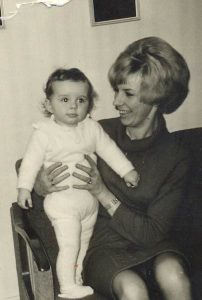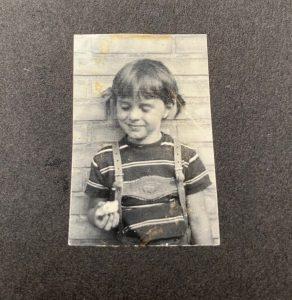Last year I contributed to a book edited by Tim Carson with the title of Neither Here Nor There: The Many Voices of Liminality. The book draws together the expertise, experience, and insights of a coterie of authors, all of whom relate the core concepts of liminality to their unique experiences. Unfortunately, this book is still not available in Australia.
The blog posts that follow are my contribution to this book. They are reflections of a very painful season in my life. However, hindsight also provides me with deep gratitude. May these posts offer some hope and courage to all fellow liminal pilgrims.

Never knowing which way was up
Until I drank the bitter cup
And then the sky it disappeared
And I was falling without fear
Falling, falling without a sound
Down down down down down down down
This is who I am, this is what I need
Falling down the rabbit hole
This is how I live, this is how I bleed
Falling down the rabbit hole
This is what I know, this is how I think …
Joel Sattler
Storytelling is the aorta that runs through my family and ancestors. It has nourished us for generations. The traditional German Kaffeeklatsch may start with just two or three people drinking coffee and eating Sahnekuchen, but within minutes the room is filled with invisible guests, joshing for their stories to be heard from another time and place. I was a fortunate child to grow up surrounded by such rich narrative.
The stories of war and displacement were never far from the lips of my Oma. She lost her husband, my grandfather, in the battle of Stalingrad. As a young mother, with my aunt who was a toddler and my father who was a three-month-old baby at the time, she had to flee her hometown of Lyck (Elk, Poland) as the Soviet Army approached in 1945. Her survival stories were harrowing: stories of despair, hunger, abuse, but also of hope. The man she married six years later would provide a safe haven for a young widow and her children.
My mother suffered from Post-Traumatic Stress Disorder all her life, most of those years without a diagnosis and unable to understand her own sense of consistent, heightened anxiety and insomnia. She was older than my father and remembers the war – running for bomb shelters, shaking violently as the fighter jets approached, the sound of Gestapo boots on the street, and her Jewish neighbour jumping off her balcony to her death so she would not be arrested. Her childhood was turbulent and traumatic.

The stories my parents and grandparents told shaped so much of my world. I grew up in a loving and nurturing home, but I was not shielded from these stories, and for that, I am so grateful. It prepared me for what I was about to experience as a seven-year-old when my parents packed up house and moved from Germany to South Africa.
Most immigrants can relate to the sense of disorientation and disconnection experienced when one settles into a country that is very different from their accustomed culture and social norms. I felt as if I was caught in a giant tidal wave of learning and new experiences. I did not find my feet for several years. I had to learn English and Afrikaans – an apartheid-torn South Africa had a dual-language approach. I also learnt Zulu. But all that took time. In the meantime, I became the focal point of playground fun and belittling. Children show little mercy when they can distract potential bullies to prey that is more vulnerable than they are. The school library became my safe place during recess and the Giant Illustrated Catholic Children’s Bible became a source of wonder.
I had no embedded idea about the blue-eyed, blonde-haired man I was looking at in that Bible. He reminded me of someone from Norse mythology or a Viking character that featured in one of the many stories my Oma told. It would be quite a few years later before I would encounter this man again. At that time, I learnt his name: Jesus.
It was the system called apartheid – an ultimate form of marginalization, bullying, and oppression of people based on the hue of their skin — that reminded me that the world is not really a safe place. My lack of friends at school was quickly compensated for by the children of the cleaners and helpers at my mother’s hair salon. It was with their help that I mastered Zulu long before Afrikaans. It was their presence that exposed me to the cruelty I now witnessed in person, not in stories. My Zulu friends could not go into the shops I visited, they had separate drinking fountains, it took them a long time to find a public toilet they were permitted to use, and they often had random grown-ups shout at and abuse them. They were not permitted to be in the streets of the area where I lived. I have a distinct memory of the neighbour across the road beating an African man unconscious because he took a shortcut across a nearby field. That neighbour then dusted off his suit and got into his car to go to church. I later found out he was an elder at the local Dutch Reformed church. To me, he remains immortalized in my historical narrative as the archetypal arsehole.
These were some of my pre-liminal stories and life experiences. I would dream of a better world. In my imagination, I was the super-hero who would put every bully in his place and liberate the oppressed. I was a child waiting to become a zealot, looking for a cause. More than that, I was a child desperately looking for belonging, safety, and predictability. I found it in institutional fundamentalist religion … (to be continued)
